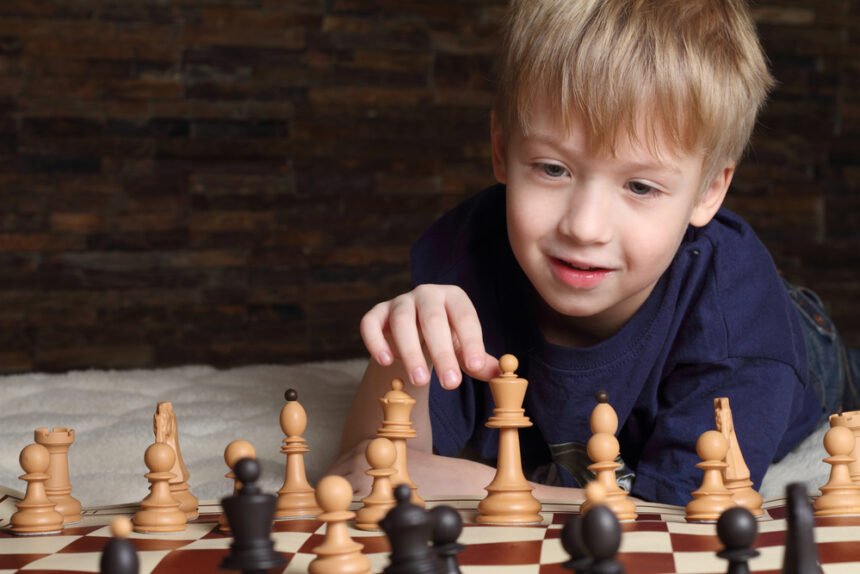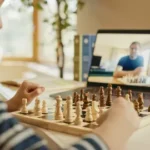Children can gain much from playing the interesting game of chess. A wonderful method to introduce young brains to this strategic and intellectually fascinating game is a beginner chess course for kids. In addition to developing critical social and cognitive abilities, these courses offer an organised method for studying the foundations of chess.
The Fundamentals of Chess
Typically, an introductory chess course for children begins with teaching the fundamental movements and rules of the game. Children gain knowledge of the chessboard’s design, the names and motions of each piece, and the game’s goal. This basis is essential for subsequently understanding increasingly sophisticated tactics.
To aid kids in remembering the principles, these classes’ instructors frequently employ entertaining and interesting techniques. For instance, they could describe each piece’s movements with tales or rhymes. This method helps the material stick in the minds of young learners and makes learning pleasurable.
Building Critical Thinking Capabilities
The improvement of critical thinking abilities is one of the main advantages of children’s chess starting training. Children who are learning to play chess have to think through several different moves and their outcomes. Through this process, they are encouraged to plan ahead, examine all options, and make thoughtful judgments.
Children in these classes are frequently led by instructors through basic chess issues, teaching them how to weigh their options and make the optimal move.
Increasing Concentration and Focus
Chess demands intense focus, which can be enhanced with a beginner’s instruction for children. Youngsters gain concentration through the game, tracking several pieces and possible moves. In other spheres of life, like academics and extracurriculars, this sharpened focus may prove advantageous.
Exercises and games that explicitly target focus abilities are a common feature of beginner chess lessons. These are meant to be entertaining and stimulating exercises that test kids’ ability to focus for extended periods.
Developing Retention Capabilities
Chess requires memory of many tactics, movements from the past, and regulations. Memory-boosting activities and strategies are frequently included in beginner’s chess instruction for children. Youngsters may be trained to picture the board, remember particular piece placements, or memorise standard chess patterns.
Children naturally get better at remembering things as they go through the chess beginner course for kids. They start to identify well-known board locations and recall successful tactics from earlier rounds. Numerous other learning domains may benefit from this memory improvement.
Building Confidence and Self-Esteem
Children frequently gain confidence and self-esteem as they study and advance their chess skills through a basic course. Children can feel proud of themselves when they win games, figure out chess puzzles, or just learn new things.
Small-scale competitions or friendly matches are a common feature of children’s chess courses. Children can test their abilities and track their development in these activities, which helps them become more confident. Instructors frequently give kids encouragement and positive reinforcement, which makes them feel good about what they’ve accomplished.
Sportsmanship and Social Skills Development
Kids can learn valuable social skills and sportsmanship by enrolling in a basic chess lesson. Youngsters pick up skills including handling winning and losing gracefully, playing fairly, and showing respect for their opponents. These life lessons apply to chess as well as all facets of it.
Children learn how to interact with classmates from varied backgrounds by playing against different opponents in these courses. Their capacity to interact socially and effectively with others can be enhanced by this experience.
Conclusion
A children’s first chess course is much more than instruction in the game. It provides kids with an organised and fun way to learn several skills that will come in handy in the future. If you are a parent, then you know that chess can be a wonderful tool used not only to enhance cognitive skills such as higher memory and critical thinking ability but also in the development of specific key social skills and personal traits. By making learning enjoyable and challenging, these programs can fuel a child’s interest in chess for their entire life and offer the kinds of transferable skills beyond chess that a child may not think of talking about otherwise.






